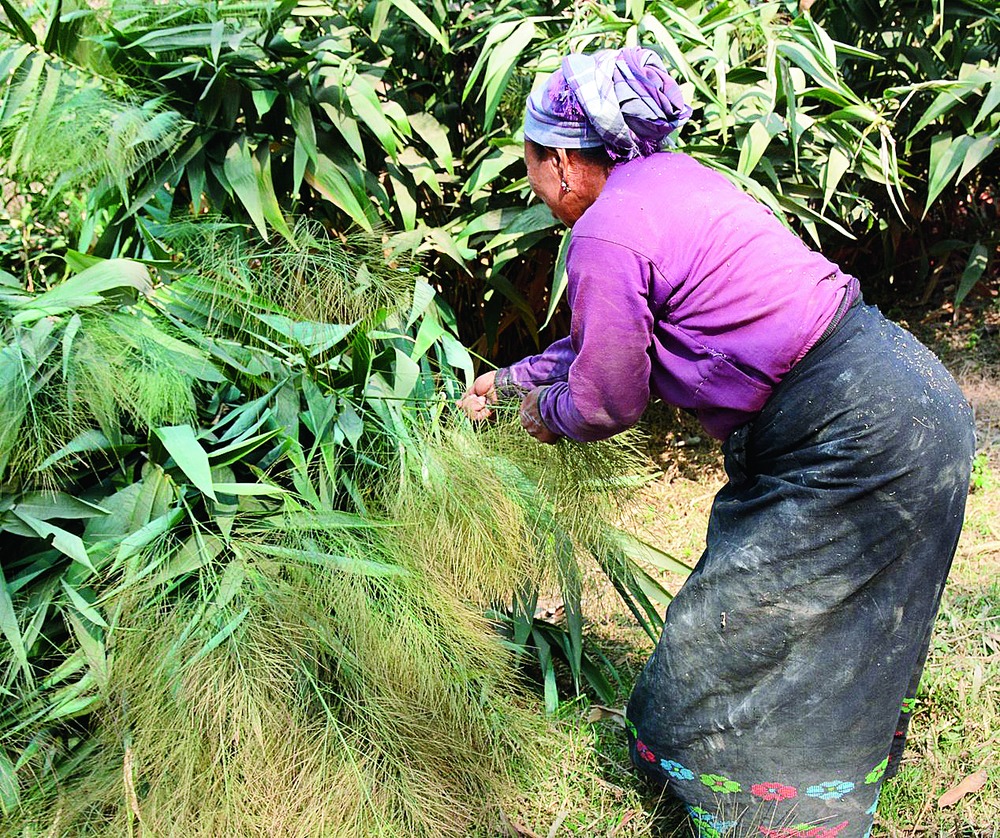
Nagaon, March 17: The broom that a woman in Kenya or South Africa uses to clean her home might be made in Hamren, the district headquarters of West Karbi Anglong of Assam.
Mumbai-based Silpa Export continues to export brooms from Hamren to African countries with support from Calcutta-based middlemen.
A source said the makers in Karbi Anglong are in the dark about this development as no organisation - neither a group nor individual - has moved the administration for official support.
Hamren divisional forest officer Jatin Sarma said the forest department recently discovered through some wholesalers that a part of the product is going to foreign countries through a Calcutta-based group.
Sandy loam coupled with favourable weather conditions are the two main reasons behind the bumper cultivation of broom grass in Hamren.
According to the source, 15 years ago, these brooms from Hamren were exported to Arabian countries through Bangalore. It was later stopped because of troubled law and order in the hill district.
Broom grass (locally known as arphek) was a popular crop in the Assam-Meghalaya border areas of Hamren district in undivided Karbi Anglong. Next to bamboo, broom grass is found in all parts of the border belt with both Khasis and Karbis involved in its trade.
"Till the other day people harvested wild broom crop. However, good returns in the seasonal broom cultivation pushed the farmers to opt for it," Sarma said.
Hamren brooms do not have an organised market but the entire state is dependent on the district for this natural product.
According to forest department records, altogether 513.5 metric tonnes of brooms were produced in the nine rema mahals in Hamren through which the forest department received Rs 89,34,075 as revenue.
The figure excludes domestic broom cultivation in Hamren.
"This is a record in the history of Hamren. As it is now peak season, we hope revenue collection will cross Rs 1 crore. This is 10 times more than the revenue earned in 2011 when the council received just Rs 11 lakh in one year from the rema mahals.
Matured brooms are first harvested using local labour and kept in the field to dry for a few days. These are packaged in the field and transported to Calcutta through Meghalaya. Before being exported to other countries these brooms are refined and repacked.
Baithalangso legislator Man Singh Rongpi said they will soon reach out to Dispur for special attention to streamline the broom market so that Hamren broom cultivation gets a new dimension.
"We must concentrate on cultivation and marketing," Rongpi said.
"Hamren brooms are popular in the national and international markets because of its quality. We collect brooms from other hilly belts of the Northeast but the products of Hamren have a separate market," said Kamal Malakar, a broom wholesaler in Baithalangso.
According to Malakar, bad roads, lack of infrastructure, frequent trouble and interference by militants and locals are the hurdles in the broom business.











